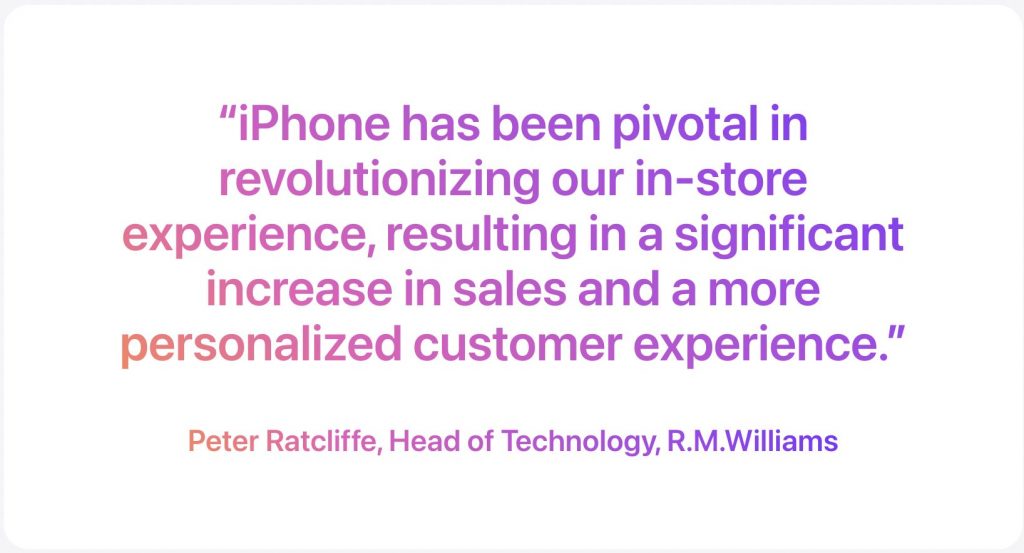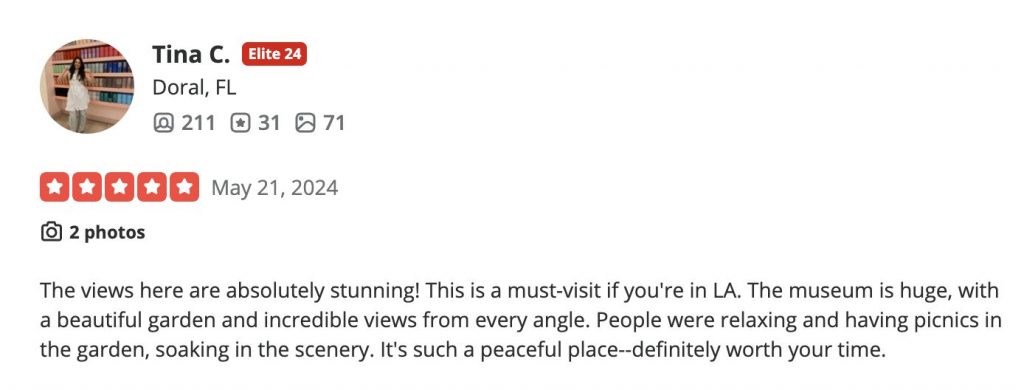Testimonials and reviews may appear to be the same thing, but their differences can be used to your advantage! Both of them can be the deciding factor between if a customer purchases from you or a competitor. So, it is important to know how to utilize them efficiently to increase sales and create a positive brand image.
What is a Testimonial
A testimonial is a written, or spoken, statement about your brand, from a customer. Testimonials are collected by asking your customers to share their experience with your brand, and to describe the quality of your offerings. These endorsements from satisfied customers are important to showcase since they show potential customers that they can trust your brand.
An example of a testimonial is on the small business success stories page on Apple’s website. As seen below, customer testimonials are featured on their site. This includes short articles written by customers explaining how Apple has helped their business.

Advantages of Testimonials
Testimonials have many advantages, including:
- They show emotion well: Your customers can express your brand story in a way that converts. Testimonial advertising campaigns often leverage this emotional connection to create powerful marketing messages that resonate with potential customers. Especially with video testimonials, your customers make an emotional connection with potential customers.
- Positive feedback: Since you are requesting the testimonial from your customer, they are generally positive. Their positive opinions about your brand can increase confidence in potential customers.
- They are sent straight to your brand: When you request a testimonial, it is sent to your brand, versus being posted on an external website. This can help your brand monitor what is being said about your brand online. It also allows you to save time since you do not need to spend time searching for videos posted about your brand.
- Utilize them in your marketing: When requesting a testimonial, be sure to let your customer know that their feedback may be featured in your marketing. This is a huge advantage since featuring testimonials in your marketing strategy, such as in ads, on your website, and in emails, will cause an increase in sales.
- Longer form content: Since you are directly instructing your customers on what you want in a testimonial, you give them the option to create long form video content. Longer content means more information is presented to potential customers.
- Direct customers: Provide your customers with a question you want them to answer in their testimonial. This helps guide your customers’ responses and ensures that they do not have to spend too much time thinking of what to say.
Examples of Testimonials
Video Testimonials
Video testimonials are powerful because they showcase real customers speaking candidly about their experience with your brand. The combination of facial expressions, tone of voice, and visual cues helps build trust and emotional connection with potential customers. These videos can be shared across social media, embedded on landing pages, or used in email campaigns to boost credibility and drive conversions.
Written Testimonials
Written testimonials are concise, polished quotes from satisfied customers that are usually displayed on websites, brochures, or promotional materials. They are easy to digest, visually scannable, and work well in text-heavy formats. You can collect these through feedback forms, email surveys, or directly from happy clients.
Audio Testimonials
Audio testimonials are recorded statements from customers that highlight their positive experience with your brand. These are useful for podcast-style promotions, radio ads, or websites targeting on-the-go listeners. Audio captures tone and emotion better than written feedback and offers a great middle ground if a customer is uncomfortable on video but still willing to share their story.
What is a Customer Review

Advantages of Reviews
- Anyone can post a review: Reviews can be posted by anyone, and they are created because your customer wants to share their opinions on your offerings with others. This is beneficial since you do not have a limit as to how many reviews are posted about your brand.
- Posted anywhere: Reviews can be posted anywhere! They can be posted on external websites, and on your customers’ personal social media. This is beneficial since your customer’s followers will see their review, and it can convince them to look into your brand or purchase from it.
- Can be anonymous: Since reviews can be anonymous, people are more honest. This can help your brand get clear insight into what needs to be worked on.
- Reviews are mostly written: Most reviews are in written form, allowing their feedback to be searchable. This will increase the reach of your brand, and will help potential customers filter reviews.
Examples of Reviews
Product or Service Reviews
These reviews focus specifically on a product or service your brand offers. Customers often share their thoughts on the quality, effectiveness, pricing, and overall satisfaction. These reviews help potential buyers make informed decisions and are commonly found on product pages, eCommerce platforms, or third-party marketplaces like Amazon.
Company Reviews
Company reviews highlight the overall experience customers have had with your brand, beyond just a single product or service. They often touch on customer support, company culture, delivery speed, and brand values. These reviews typically appear on platforms like Google, Glassdoor, or Trustpilot and can influence how trustworthy your brand appears to new audiences.
Social Media Reviews
Social media reviews are informal but influential. They often come in the form of posts, comments, or story mentions where customers tag your brand and share their experience. These reviews can go viral and offer valuable social proof. Because they’re public and shareable, they can help you reach a broader audience organically.
Key Differences Between Testimonials and Reviews
Testimonials and written reviews are similar since they both feature feedback from your clients, but there are some key differences:
- Testimonials are more formal, while reviews are more informal. Since your brand is personally requesting feedback from customers in their testimonials, and providing them with a prompt, they end up being more personal and tailored to your brand and the content that you need.
- Your brand is able to monitor testimonials easier than reviews. Testimonials are sent directly to your brand, whereas reviews are posted on third party websites.
- Testimonials have more focused feedback, whereas reviews feature a range of different topics. For example, you can ask your customers to tell you how you have helped them solve a problem they are facing in the testimonial they create for you. In a review, customers are not instructed on what to say: they can talk about the employees they interacted with, a specific product or service, or any feature they choose to focus on.
- Reviews offer your brand with more unfiltered feedback, whereas testimonials provide you with mostly positive feedback.
- Reviews typically feature stars. People use stars to quickly make a judgment about your brand without actually reading any of the reviews.




